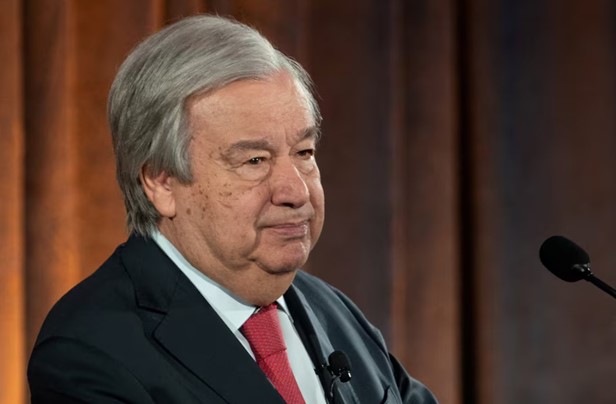
Climate Change and Security Take Center Stage as Pacific Island Leaders Prepare for Crucial Meeting
Climate change and security concerns are expected to dominate next week's meeting of Pacific Island leaders in Tonga, as China and the United States continue to vie for influence in the region.
Cook Islands Prime Minister Mark Brown, who chairs the Pacific Islands Forum, emphasized during a meeting with foreign ministers from the forum's 18 member nations that "regional solidarity amidst increasing geostrategic interest, navigating the ongoing climate crisis, and addressing emerging challenges" are the top priorities.
United Nations Secretary General António Guterres is also set to visit Tonga, a nation of 100,000 people spread across 36 islands and heavily dependent on foreign aid, to underscore the urgent need for increased climate change support.
Ahead of the meeting, economic ministers highlighted the slow economic growth, rising costs of imported essentials, and the severe impact of climate-related disasters affecting the region. The decline of international banking services across Pacific Island nations will also be a key topic of discussion.
Civil unrest in New Caledonia, a forum member and French territory, between indigenous Kanaks and French loyalists, presents another significant security challenge for leaders to address. Additionally, the forum will consider a proposal to enhance training for Pacific Islands police forces, enabling member nations to support each other during crises and reducing reliance on external assistance from countries like China.
Australia, the largest member of the forum, has endorsed this proposal and will finance a regional police training center in Papua New Guinea. Mihai Sora, director of the Pacific Islands Program at Australia's Lowy Institute, noted that the initiative is politically sensitive, as it must be perceived as aligning with Pacific Islands' priorities rather than simply reinforcing Australia's role as the primary security partner.
In recent years, China has been a major infrastructure lender in the region and is now seeking to expand its influence in military, policing, digital connectivity, and media. Chinese police are already active in the Solomon Islands and Kiribati, and Beijing recently hosted visits from the leaders of Fiji, Vanuatu, and the Solomon Islands, showcasing its capacity to provide development aid and pursue its security objectives.
U.S. Deputy Secretary of State Kurt Campbell will also travel to Tonga to engage with forum leaders, according to the U.S. State Department. Although the U.S. is not a forum member, leaders will decide on an application by the U.S. Pacific territories of Guam and American Samoa to join as associate members, without voting rights.
"These are American territories, so this move would enhance U.S. access and potentially increase its influence in shaping regional discussions," commented Sora.
Illustrating the complexities of achieving a unified stance, forum member Kiribati announced on Facebook that it would close its doors to foreign diplomatic visits until 2025. The remote nation's pro-China president, Taneti Maamau, recently regained his parliamentary seat in a national election but still faces a direct presidential vote later this year.
Three forum members currently maintain diplomatic relations with Taiwan, which China considers part of its territory, following Nauru's recent decision to switch allegiance to Beijing.